Tools and tips for aid agencies and media professionals
- 09/03/2019


Lifeline programming is special media programming for people who are affected by humanitarian crises. It aims to give them a voice and provide timely, relevant and practical information to help alleviate their suffering and assist with their recovery. It can play an important role in strengthening community engagement and accountability of relief providers.
For several years, BBC Media Action has been working to produce tools and resources for media and aid workers on Lifeline programming and on using media and communication to help people in humanitarian emergencies. Some of these tools are now also available in Bangla.
- The Lifeline Production Manual is for broadcasters and other media professionals and is a guide on how to make programming for people affected by humanitarian emergencies. The manual is available in Bangla and English.
- The guide for aid agencies provides tips and advice about how to engage with the media in a humanitarian crisis, aiming to help humanitarian responders work with the media to help save lives and reduce suffering as part of an emergency response. The guide is available in Bangla and English.
- The guide for communicating in public health emergencies provides tips for media practitioners on how to help audiences during health emergencies. It is available in English
Other resources, including an online training module, topic-specific guides related to particular sectors and translations into other languages are available via the BBC Media Action Lifeline programming resource site.
The production manual and guide for aid agencies were originally produced by BBC Media Action with support from the UK Department for International Development. The guide on communicating in public health emergencies was created by BBC Media Action for the International Federation of Red Cross and Red Crescent Societies with support provided by the Bureau for Global Health, US Agency for International Development.
Materials have been translated with support from Translators without Borders as part of the Common Service for Community Engagement and Accountability, which is delivered in partnership with IOM, the UN migration agency, and is funded by the UK Department for International Development.




















